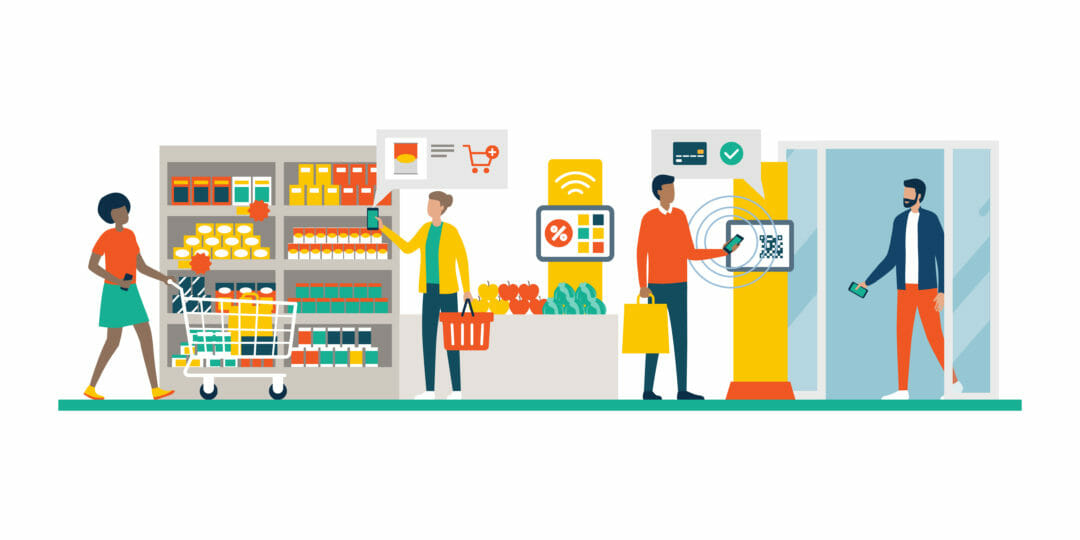Retailers across the UK are in crisis. More than 14,000 shops have closed their doors so far in 2020, and 117,000 retail workers have lost their jobs, according to the Centre for Retail Research. Thousands more British shops could close before the end of the year, analysts say.
As the Covid-19 pandemic stretches into its tenth month, British consumers say they don’t feel safe shopping in physical stores, and would rather shop online. In a September survey, one out of 10 shoppers said their shopping habits had changed permanently, and would never go back to what they were pre-pandemic.
On the other side of the till, shop workers say their working conditions are more dangerous than ever, with twice as many incidents of assault, abuse and threats as normal, according to the Union of Shop, Distributive and Allied Workers.
The Covid-19 pandemic has upended the digital transformation plans already underway at many UK retailers, compressing those plans from years to months. Retail CIOs and CTOs are being asked to find the technologies necessary to survive the pandemic and navigate the landscape of new risks that retailers face.
Digital business transformation post Covid-19: the next wave
A critical, immediate challenge facing all retailers is improving the physical safety in their stores, for both shoppers and retail workers. The solution requires operational change—hand sanitiser stations, mask mandates, frequent, highly visible cleaning, physical barriers, contactless payments, contactless pickup and temperature checks.
It also requires new technology. A group of retail CIOs and CTOs in the UK are using artificial intelligence (AI) to help them better understand emerging security risks happening across their portfolio of physical stores, to protect shoppers and shop workers.
Artificial intelligence at the forefront
While no one knows what the full impact of the pandemic will be, there is increased pressure for retailers to adapt to the disruption and quickly make key decisions in regards to public safety and business continuity. For that, they’re leaning on AI.
Before the pandemic, 40% of UK retail CIOs and CTOs said they thought their companies should be investing in AI. According to a study by Deloitte UK, 72% of British businesses had already achieved positive return on their AI investment by the end of 2019.
Outside of proprietary data such as sales volume and inventory levels, retailers are now also looking to their customers and workforce who are generating their own broad sphere of valuable, unstructured public data to ultimately inform safety and best practices during the Covid era.
Across the UK, people are constantly publicly documenting health risks at retail stores in hopes that they’ll be seen and acted upon by management. Often, that real-time, public feedback is overlooked, because it’s too difficult for retailers to manually find every event that is relevant and important in the moment, and decisively act on each at scale. With the adoption of AI, retailers can identify those new risks, allowing local retail leadership to quickly make better-informed decisions to protect people and operational continuity.
The value of AI to all retailers great and small
A changing landscape of risk
On a macro level, UK retailers need a firm, daily grasp on the evolving risk landscape — staying on top of new mandates and health requirements from the government, store closures among their competitors, and official decisions that can affect operations.
Real-time information will play a critical role in retail operations, as the continued spread of Covid-19 takes us into flu season across the northern hemisphere.
Industry-leading CIOs and CTOs have accepted the fast-paced, growing public information landscape as a modern-day challenge. Now, it’s more important than ever that today’s retailers continuously evaluate technological advancements in order to seamlessly discover, distill and deliver business-critical information to enable actionable insights for the immediate present and their future.
The promise of AI in identifying risk coupled with aiding in critical decision-making is just one of many applications of the technology in redefining the traditional retail experience in the post-Covid era.








